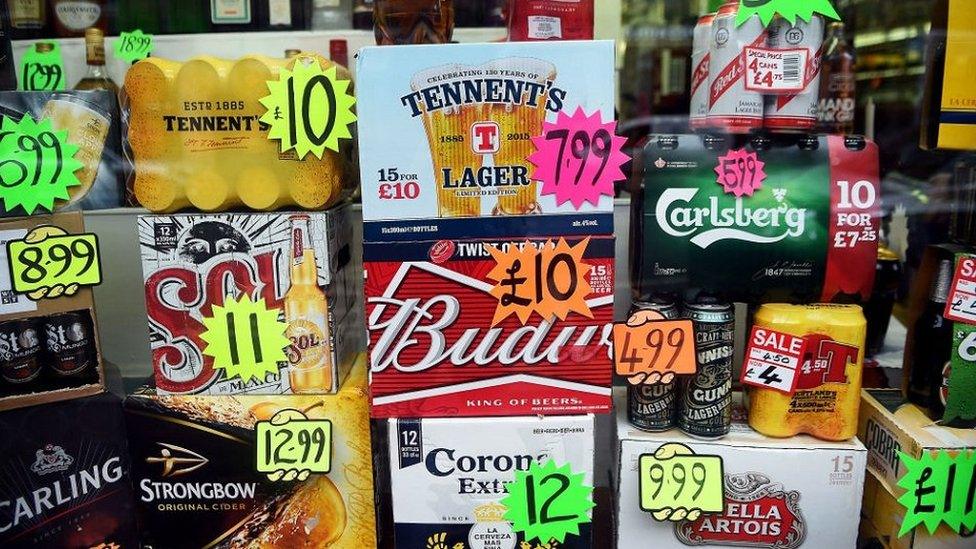What is minimum pricing for alcohol and how does it work?
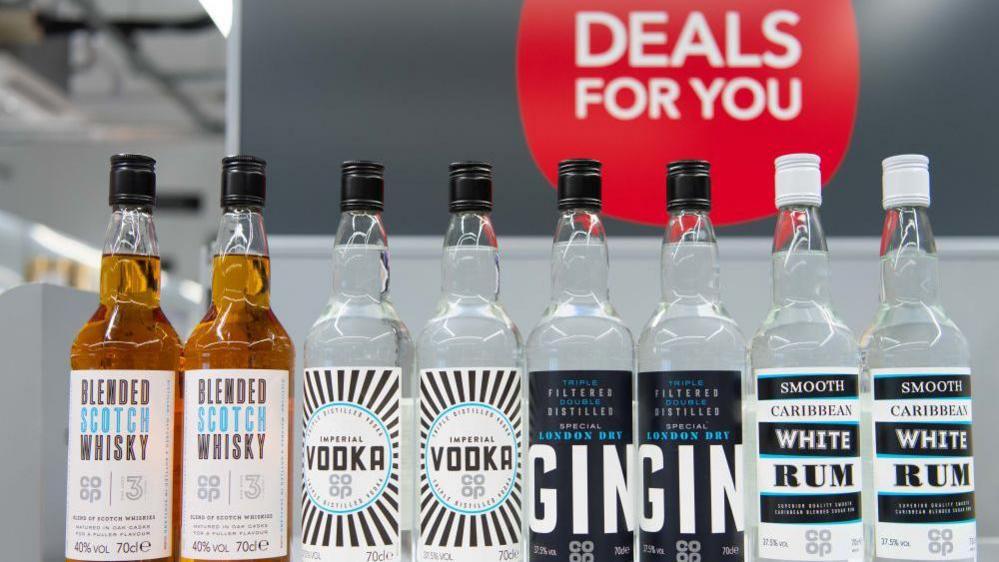
- Published
Scotland has been trying to tackle problem drinking for decades and increasing the price of booze was the most radical step so far when it was introduced in 2018.
The aim of the policy was to increase the price of super-cheap alcohol such as strong cider, which in some cases was costing less than a bottle of cola.
For the past six years, the price per unit of alcohol has been 50p but the Scottish government is now proposing to raise it to 65p from the end of September.
How does minimum pricing work?
Minimum unit pricing (MUP) is not a tax and does not generate income for the government.
Instead it aims it to reduce the availability of cheap alcohol by setting a minimum price.
Before it was introduced in 2018, super strength cider (7.5%) was sold in two litres bottles for as little as £1.99.
After the legislation was introduced that same two litre bottle could not be sold for less than £7.50 because of the 50p minimum price for a unit of alcohol.
Under the new plans for a 65p minimum price it would be £9.75.
MUP was mainly aimed at strong cheap alcohol sold in shops and supermarkets.
It has had little effect on pubs and restaurants who already sold beer and wine for more than the minimum in most cases.
How do you calculate minimum unit pricing?
You can work out how many units there are in any drink by multiplying the total volume of a drink (in ml) by its ABV (Alcohol by volume - measured as a percentage) and dividing the result by 1,000.
A bottle of 70cl (700ml) bottle of vodka at 37.5% abv is 26.25 units.
At 50p per unit of alcohol that means a minimum price of £13.13. At 65p per unit of alcohol the price rises to £17.06.
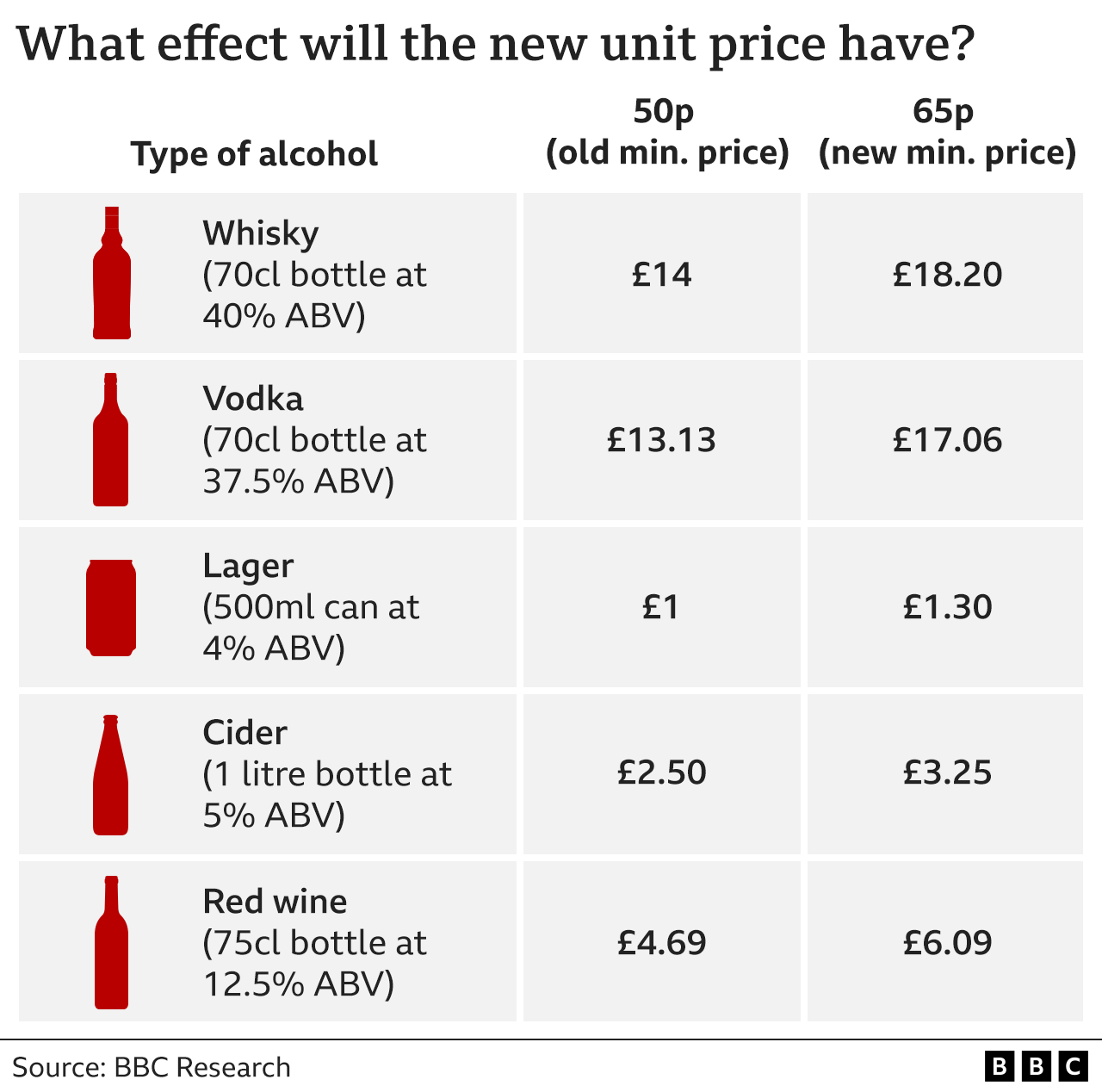
Has minimum unit pricing been effective?
When it was introduced six years ago, Scotland's scheme was the first of its kind in the world and there was much interest in what effect it would have.
Since then academics have been evaluating the impact and last year Public Health Scotland collated 40 studies to examine the policy's effect on health, business and public attitudes.
Overall, the report claimed MUP "had a positive impact on health outcomes, including addressing alcohol-related health inequalities".
Based on comparisons with England, the analysis estimated there were 13.4% fewer deaths related to alcohol in Scotland than would have happened without the policy.
In 2022, the last year for which figures are available, there were 1,276 alcohol-related deaths in Scotland, the highest level since 2008 and still much higher than the rate in England.
However, Public Health Scotland said that the picture would have been even worse without MUP.
The report warned there was “limited evidence to suggest that MUP was effective in reducing consumption for those people with alcohol dependence”.
What are the negatives of minimum unit pricing?
MUP increases the price of alcohol but it does not generate any money for the government and therefore can't be used to fund tackling the health and society issues caused by excessive drinking.
Public Health Scotland said there had been a 3% reduction in alcohol consumption as measured by retail sales and there was "no clear evidence of substantial negative impacts on the alcoholic drinks industry in Scotland as a whole".
However, retailers and drinks manufacturers are concerned that a further rise in the minimum price could affect their business.
The Scottish Conservatives said increasing it to 65p "would only hit responsible drinkers during a cost-of-living crisis".
Which countries have minimum unit pricing?
Scotland actually passed its law on minimum pricing in 2012 but then fought a five-year legal battle, headed by the Scotch Whisky industry.
The UK government also pledged to introduce to introduce minimum pricing but shelved the plan in 2013 in the face of fierce opposition from the drinks industry.
When Scotland finally introduced minimum pricing in 2018 it was an idea that was being used in other forms in a small number of countries, including parts of Canada and Russia.
Many others have rules aimed at restricting cheap alcohol sales.
In 2020, Wales introduced minimum pricing at 50p per unit.
Related topics
- Published21 March 2023
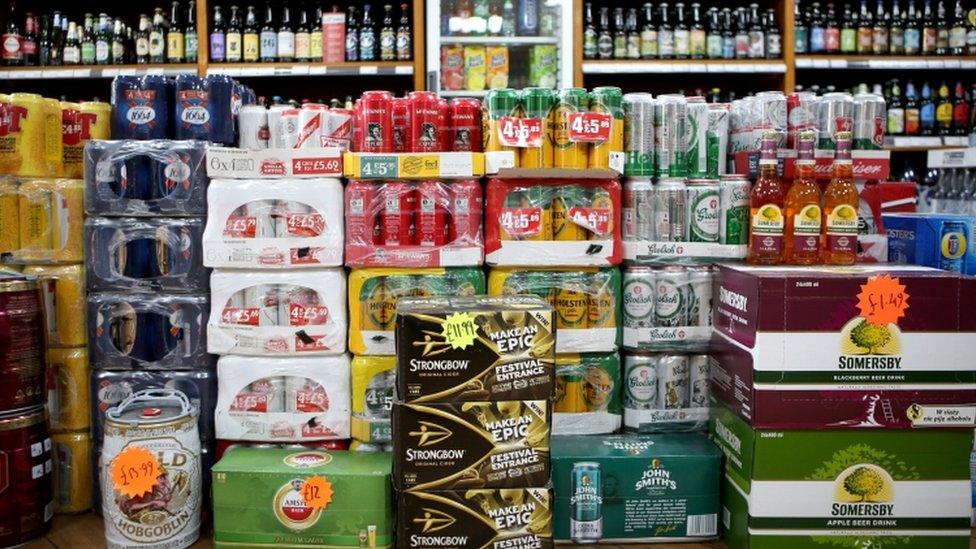
- Published20 September 2023
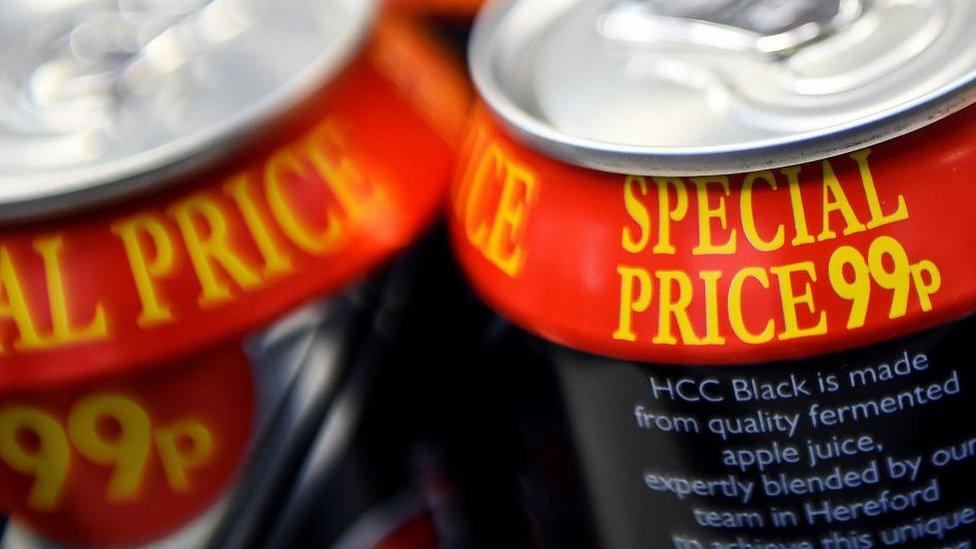
- Published27 June 2023
